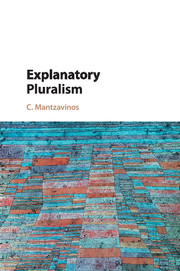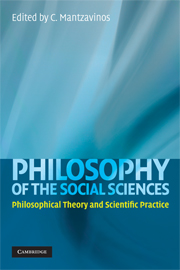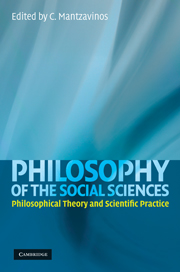Explanatory Pluralism
Explaining phenomena is one of the main activities in which scientists engage. This book proposes a new philosophical theory of scientific explanation by developing and defending the position of explanatory pluralism with the help of the notion of 'explanatory games'. Mantzavinos provides a descriptive account of the explanatory activity of scientists in different domains and shows how they differ from commonsensical explanations offered in everyday life by ordinary people and also from explanations offered in religious contexts. He also shows how an evaluation and a critical appraisal of explanations put forward in different social arenas can take place on the basis of different values. Explanatory Pluralism provides solutions to all important descriptive and normative problems of the philosophical theory of explanation as illustrated in sophisticated case studies from economics and medicine, but also from mythology and religion.
- Proposes a new philosophical theory of scientific explanation
- Includes case studies from economics and medicine, and also from mythology and religion
- Articulates, for the first time, the position of explanatory pluralism in a systematic fashion
Reviews & endorsements
'C. Mantzavinos raises fundamental questions about what a philosophical theory of explanation should do, and he offers a highly original and illuminating approach to the tasks he singles out as important. This book is required reading for anyone interested in the philosophy of science.' Philip Kitcher, John Dewey Professor of Philosophy, Columbia University, New York
'What distinguishes the different scientific disciplines and the evolving developments within any discipline? Mantzavinos says that each discipline plays its own explanatory set of games, each answering to a set of guiding values; and that a game may change in any domain as it proves better answerable to local values or as those values themselves shift. This engaging theory of explanation is philosophically innovative and empirically informed, with discussion ranging widely over the natural, psychological and social sciences.' Philip Pettit, L. S. Rockefeller Professor of Politics and Human Values, Princeton University, New Jersey and Distinguished Professor of Philosophy, Australian National University, Canberra
'This is a very lively and engaging defense of pluralism about explanation. Mantzavinos argues forcefully that no single model of explanation, of the sort traditionally sought by philosophers of science, adequately captures all the different varieties of explanatory activities that go on in science and in other areas of human life. He proposes instead that we understand explanation in terms of a strikingly new notion - that of an explanatory game. Philosophers and non-philosophers alike will find much of interest in this original and stimulating book.' James F. Woodward, Distinguished Professor of History and Philosophy of Science, University of Pittsburgh
'… an important antidote to the ontic conception of explanation that has recently plagued philosophy of science. … [It] refocuses the debate so as to highlight the cognitive and social elements of explanatory activity; it is an important and welcome addition to the literature.' Alexander Beard and Cory Wright, Analysis
Product details
No date availablePaperback
9781107576322
235 pages
230 × 153 × 14 mm
0.37kg
12 b/w illus.
Table of Contents
- 1. Introduction
- 2. The wrong question: what is an explanation?
- 3. A brief outlook on the social sciences
- 4. Towards explanatory pluralism
- 5. The explanatory enterprise
- 6. The rules of the explanatory game
- 7. The plurality of explanatory games
- 8. Explanatory activity as problem solving activity
- 9. Explanatory rules as shared rules
- 10. Normative appraisal: a procedural conception
- 11. Explanatory methodology as technology
- 12. Epilogue.







